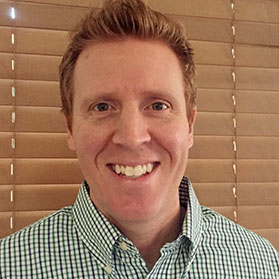How do you define an affair?
Does contacting an old flame on social media behind your partner’s back constitute cheating? What about chatting online with someone you’ve never even met in person? Or, staying late after work and having long emotional talks with an attractive colleague about your current marital problems?
Defining an affair is tricky and often a very subjective undertaking. What constitutes an affair for one person may be seen much differently by their partner. Often couples get stuck on this issue where one believes an affair has taken place and the other disagrees. Without some agreement on what has taken place, it’s hard to start healing. Let’s try to define an affair so we can build a common understanding.
Change the Term
I work with my clients to change the term from affair to betrayal. It’s much easier to deny that an affair has taken place, but the term betrayal is a much lower bar to reach. If you’ve done something that has hurt your partner and did so without their knowledge, you have betrayed them. Plain and simple.
Now that we’ve lowered the bar and come to an understanding on what a betrayal is, let’s address the issue of defining an affair.
The 3 Elements of an Affair
I like author and therapist Tammy Nelson, PhD’s criteria for defining an affair. This author notes that one the following 3 elements must be involved to constitute an affair.
These elements are:
- An outside emotional relationship
- Dishonesty
- A sexual relationship
An affair or betrayal may have only one of these elements or it may involve some combination of all three.
The Outside Emotional Relationship
This relationship is usually defined by letting one’s guard down and having conversations that exceed the boundary for a friendly relationship. The involved partner often talks about current struggles in their marriage that would be better suited to a couples counseling session and not friendly chatter during happy hour.
The emotional relationship tends to be built over time and often occurs with someone who exists in close proximity to the involved partner such as a work colleague. The two people become emotionally bonded together over hours of intimate conversation where thoughts, feelings, dreams, and struggles are shared.
The Dishonesty
This part is pretty straight-forward. If you’ve lied to your partner or have kept them in the dark by omitting details they would not be approving of, you’ve been dishonest. It’s true that not all lies hold equal weight, but for most hurt partners the thing that is the most difficult to get over is the fact that their partner has been dishonest with them. This erodes the trust and sense of safety needed to have a healthy relationship.
A Sexual Relationship
Some people don’t consider having cheated unless there has been a sexual relationship. I am here to say that most people l work with don’t see things that way. While a sexual relationship may serve as a deal-breaker for some partners, it isn’t the only criteria needed to define an affair.
Some will argue about the definition of a “sexual” encounter, so defining this by any physical act executed in a sexual nature may help to clarify. For some partners kissing is more hurtful than genital penetration. Others see oral sex as the most egregious sexual act. Regardless of how you rate the specific acts, a sexual relationship constitutes a betrayal.
Start the Healing
Regardless of what type of affair or betrayal you have encountered, starting the healing process is essential. Recovering from a betrayal has both an individual and a relational component. Not all relationships will survive an affair, but many will. Statistics show that about 65% of married couples remain together after an affair. While a large percentage stays together, the question remains have these couples truly recovered?
Often the answer is no, they have not recovered. Finding expert help to deal with affairs is critical to starting the healing process and getting the relationship back on solid ground.
Douglas Counseling specializes in helping individuals and couples rebuild their relationships after affairs and betrayals. If you would like more information or would like to schedule a free consultation, please call (503) 388-6611 and visit us online at www.DouglasCounseling.com.

